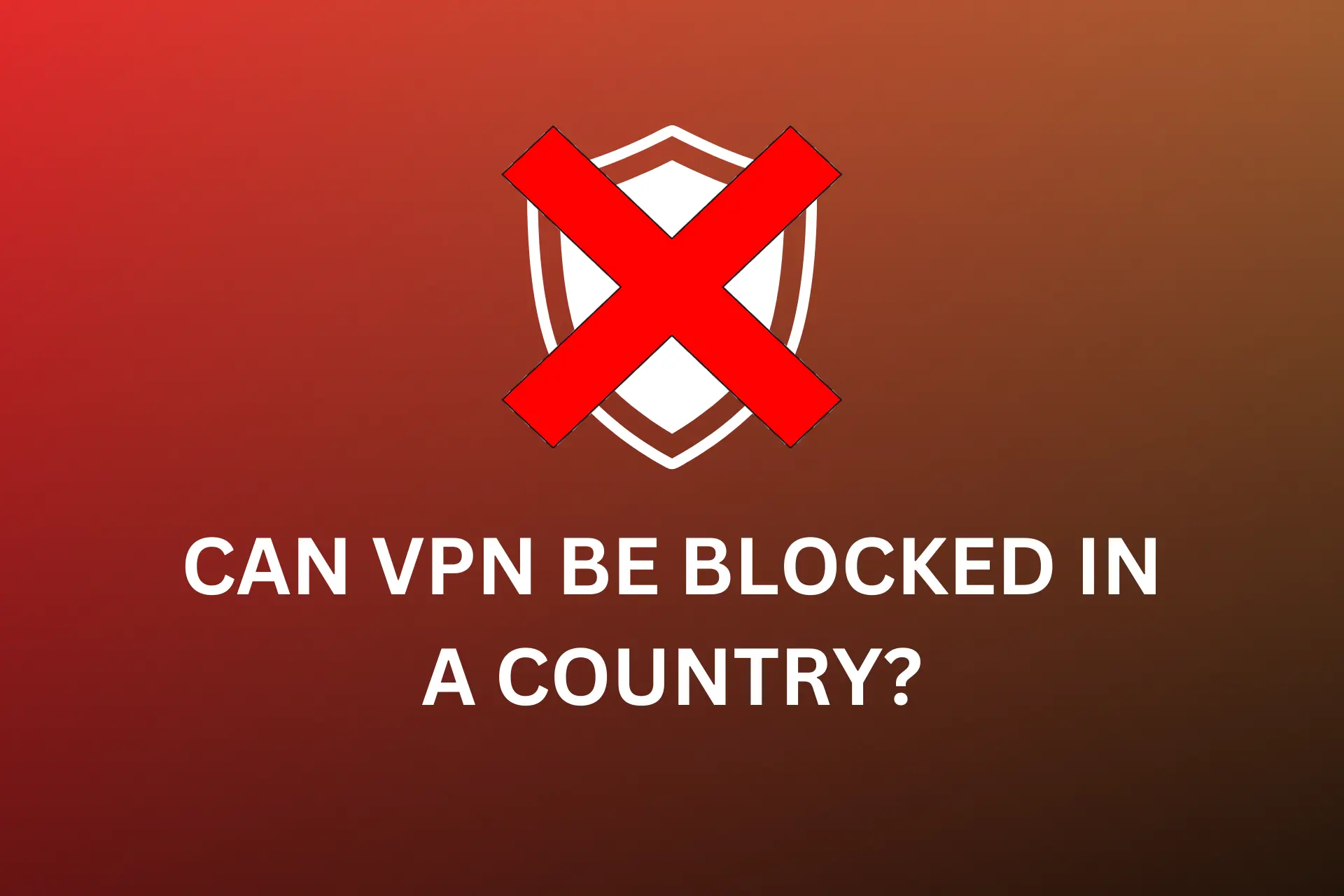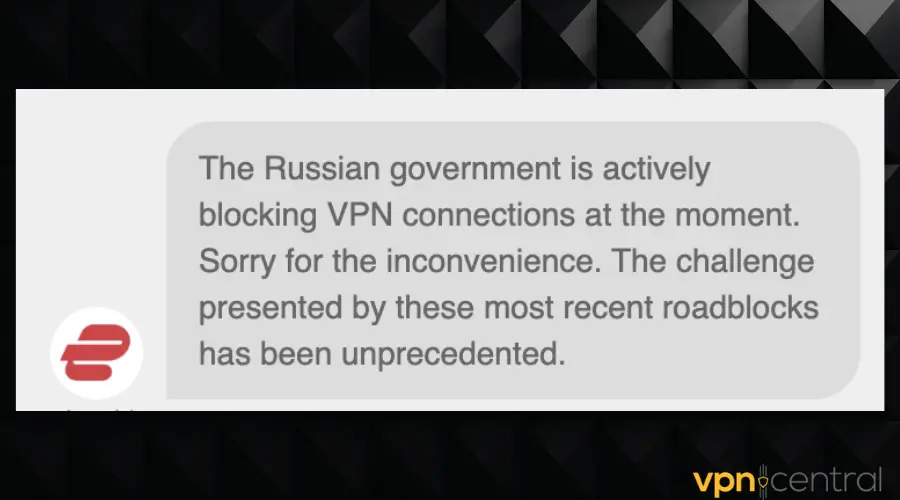Can VPN Be Blocked In A Country? How Does VPN Blocking Work

We all know the good benefits of using a VPN such as data encryption, privacy protection, location spoofing, access to unlimited bandwidth, and lots more.
Regardless of this, some countries view the use of VPNs as illegal, and as such, causing them to heavily regulate their use within their borders.
Some countries have gone the extra mile to block the use of VPNs in their jurisdictions, thereby forcing their citizens to use the internet without protection from trackers and snoopers.
This article discusses the countries that block the use of a VPN and how they enforce their VPN blocks.
Can VPN be blocked in a country?
Yes, VPNs can be blocked in a country. Governments can stop access to VPN official websites, block VPN ports, and known VPN IPs, and use anti-VPN tracking systems to block suspicious connections.
These bans are usually a measure to censor and control the information or content that their citizens have access to.
The best example of this is the censorship of adult films and games in some countries, especially Iran and other Middle Eastern countries.
Other countries track the online activities of their citizens, which is something a VPN helps to avoid.
Countries like China, Iraq, Belarus, North Korea, Russia, Oman, and the UAE all ban the use of VPNs.

Using a VPN in these countries can lead to hefty fines or other severe punishments, including legal prosecution and jail terms.
How countries block VPN services
- Deep packet inspection
This method works by removing the application layer of every data packet a user sends through the ISP’s server network.
This helps to identify the content embedded in a VPN-protected data stream owing to a range of indicators.
When the data packet contains censored requests, as well as certain connection identifiers, the ISP blocks the request and the connection.
ISPs typically use this method as it’s a faster and less expensive method to maintain. In regulated countries, the government can order internet service providers to conduct deep packet inspections. - Port blocking
This is the most common and less effective method to prohibit the use of VPNs in some countries.
Usually, some VPNs use certain ports for protecting user data and encryption purposes. The easiest to block and detect ports are those using PPTP and L2TP.
In order to enforce the block, the ISP detects the traffic coming from the PPTP and LT2P and denies it access to the internet. - IP blocking
This involves blocking IP addresses known to belong to a VPN server.
Many IP addresses are known to be part of one or another VPN’s server network, and restricting access to them will block your VPN from connecting.
Lots of countries, as well as streaming services use this method to reduce the efficiency of VPNs when it comes to unblocking restrictions or evading bans.
However, this is a pretty limited blocking system because it’s pretty much impossible to identify and block all the IP addresses of a VPN.
When this type of method is used, simply switching to different servers will get you back on your VPN connection. - Transmission control packets
Highly regulated countries like China use a combination of legal and technological methods to enforce their internet censorship.
The Great Firewall checks Transmission Control Packets (TCP) for banned keywords and blocks them. This includes anything related to VPN.
Once it detects banned requests in the packets originating from a user’s device, it blocks all requests from that device.
How to bypass VPN detection
In recent times, some premium VPNs have employed newer and stronger encryption protocols. These include the IKEv2 and OpenVPN which can bypass any VPN block.
The good news is that these protocols are hard or even impossible for ISPs to detect.
Therefore, it is easy to bypass these VPN blocks by using a reliable and premium VPN that uses the recent OpenVPN and IKEv2 tunneling protocols.
These protocols use random and anonymous ports that make it hard for ISPs to even detect them.
You may also enjoy reading:
Conclusion
Can VPN be blocked in a country? Yes. As you have seen in this article, many countries block VPNs for various reasons.
To them, VPNs are bad and it gives their users unauthorized access to illegal or geo-restricted content.
However, VPNs have advantages, and even in these countries, you can bypass blocks with a premium VPN provider.
But before you use a VPN in any country, check what the law says to ensure that you’re not violating its laws.
Some countries have strict laws against the use of VPNs. Using them can land you in trouble which can include hefty fines, legal prosecution, and jail time.
FAQs
Yes, Russia blocks the use of non-government-operated VPNs. This is a method put in place to censor and spy on citizens’ internet activities, thereby risking their privacy.
The Russian government uses a combination of restrictive methods and legal actions to enforce the VPN ban.
However, certain VPN providers have devised a means to get around these restrictions with the use of obfuscation technology.
Iran uses both DPI and Port Blocking to block VPN use within its borders. The government of Iran actively tracks users’ online activities and blocks their access to numerous apps, services, and websites.
The port blocking method identifies the connection protocol the internet request is originating from and then blocks it from having access to the internet.
The DPI method identifies and blocks VPN-protected data sent over the internet. However, the VPNs compiled in this list work perfectly for Iran.
Governments block VPNs to restrict access to certain apps, games, social media platforms or content that their policies do not support.
Others do it to enable them to track and monitor their citizen’s online activities.
In countries where VPNs are blocked, the citizens therein have no access to any information of their choice as it has all been filtered by the government. The government feeds them whatever it wants so as to keep them from protesting for their rights and freedom.
Read our disclosure page to find out how can you help VPNCentral sustain the editorial team Read more






User forum
0 messages